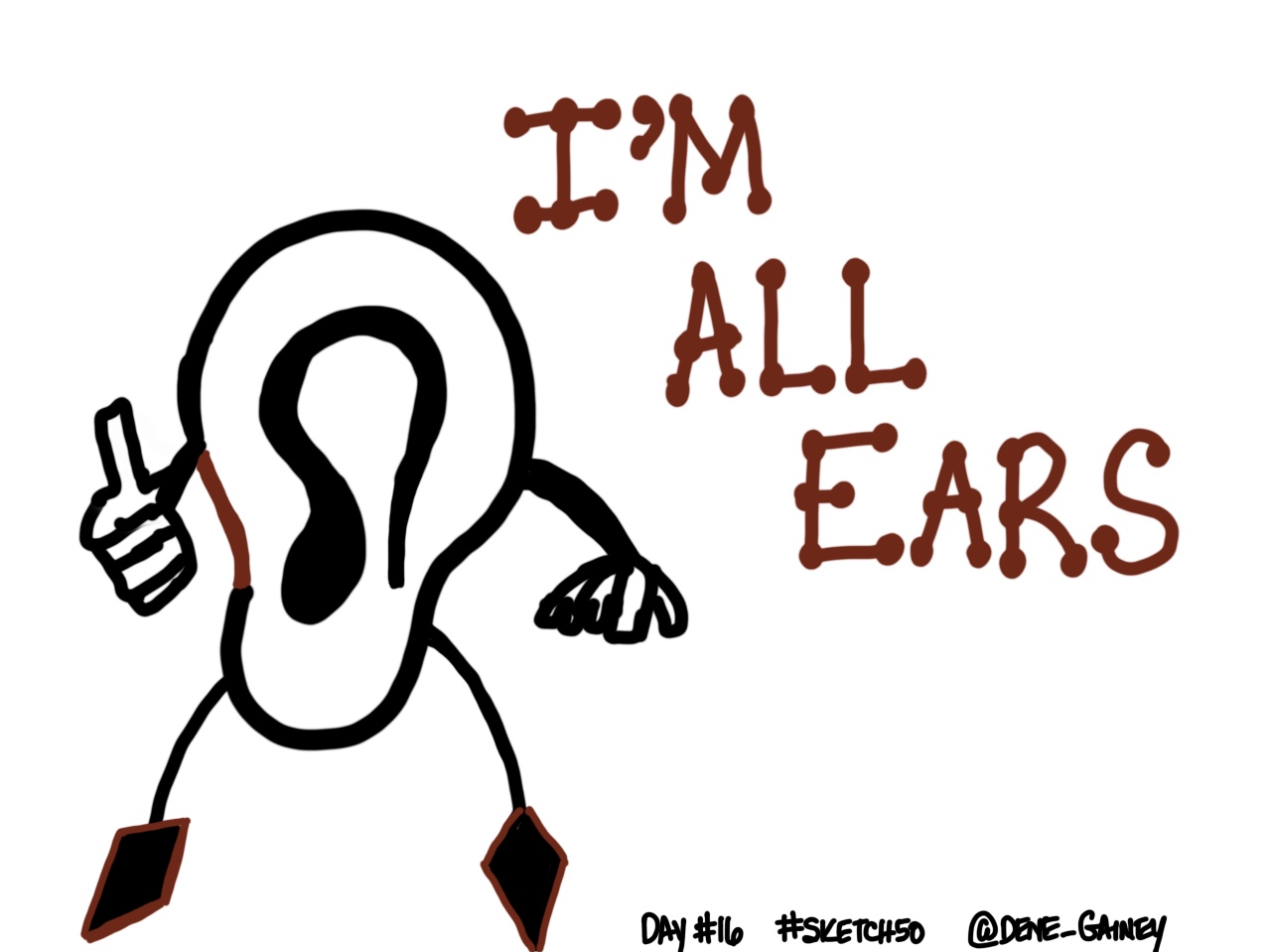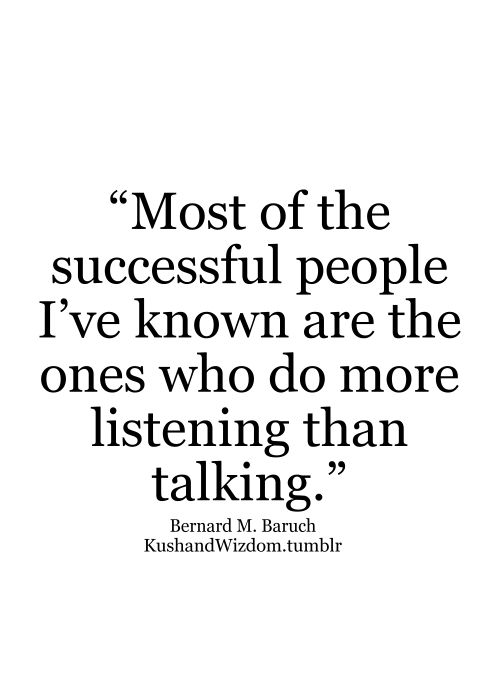I'm All Ears.
"The most important thing in communication is hearing what isn't said" --Peter Drucker
Now the above quote is the type that really reaches out and grabs me. Consider for a moment that listening helps you to understand what is missing or rather what can be added to a conversation. Is anyone really listening to you when you speak? Do they even care enough to stop talking or doing, long enough to listen to what you have to say? That is the question of the day. When I listen to you, it means that I care about what you have to say and that I am allowing you the space, the time, the platform, or the opportunity to share it. Sounds easy right? 
Is there truly anything to be gained from talking and never stopping to listen. I’d heard someone say that we have two ears and one mouth (Epictetus) The more I consider it, the more I realize that there is such value in being one who listens, or in fact, is slow to speak. I can attest to the fact that I have learned so much simply by listening to people, without ever having to utter a word.
My dad had always been slow to speak. But when he did speak, his words commanded the attention of all those in his vicinity. You might say that was due to his profession, his family or his wisdom. I submit that it was due to his decision. I question today the value that is placed on positioning yourself so that you can hear from someone else, "truly." All too often, the experience as been the opposite, where we talk constantly, or even without regard for what someone else may have to offer.
As an educator, one considers the students that he or she teaches; I definitely do. Naturally in a classroom where learning is to take place it requires both listening and speaking skills. Is one more valuable than the other. Perhaps not, however, they do have equal relevance in the day-to-day expectations of a teacher. This is of course not limited to students listening to a teacher, but students listening to other students. Listening is an important skill for all. Surely I cannot truly expect my students to listen if I don't model that, or walk it out in front of them. I'd rather be the example instead of a hypocrite.
This is of course not limited to students listening to a teacher, but students listening to other students. Listening is an important skill for all. Surely I cannot truly expect my students to listen if I don't model that, or walk it out in front of them. I'd rather be the example instead of a hypocrite.
They all get excited about sharing. They are all engaged in the process of speaking, and will take every opportunity to talk to others. But what about the listening piece? How do you teach students about the inherent value of being a good listener? How might you model being a good listener for students such that he or she (the students) can understand that if they listen, they can earn greater understanding of an idea, but at the same time, consider a respectful and sound response to what they have heard?
So together, listening and speaking form a conversation. And the conversation is one that has value because the participants are involved in both the listening and speaking components. What would change if we all made it a point to be better listeners? And by so doing, what we are able to add to the conversation is both impactful and relevant, furthering the learning, rather than taking from it. Does listening make you a pushover or "weak?" Not at all. I believe it truly means you understand and respect others when you can see value in their words. We all have experiences. We all have stories to tell. Dare I say that we can all benefit from someone who will listen? Dare I go further and say that listening will change not only the life of whom you're listening to, but your own as well? Someone listened to me. I've not been the same since.

